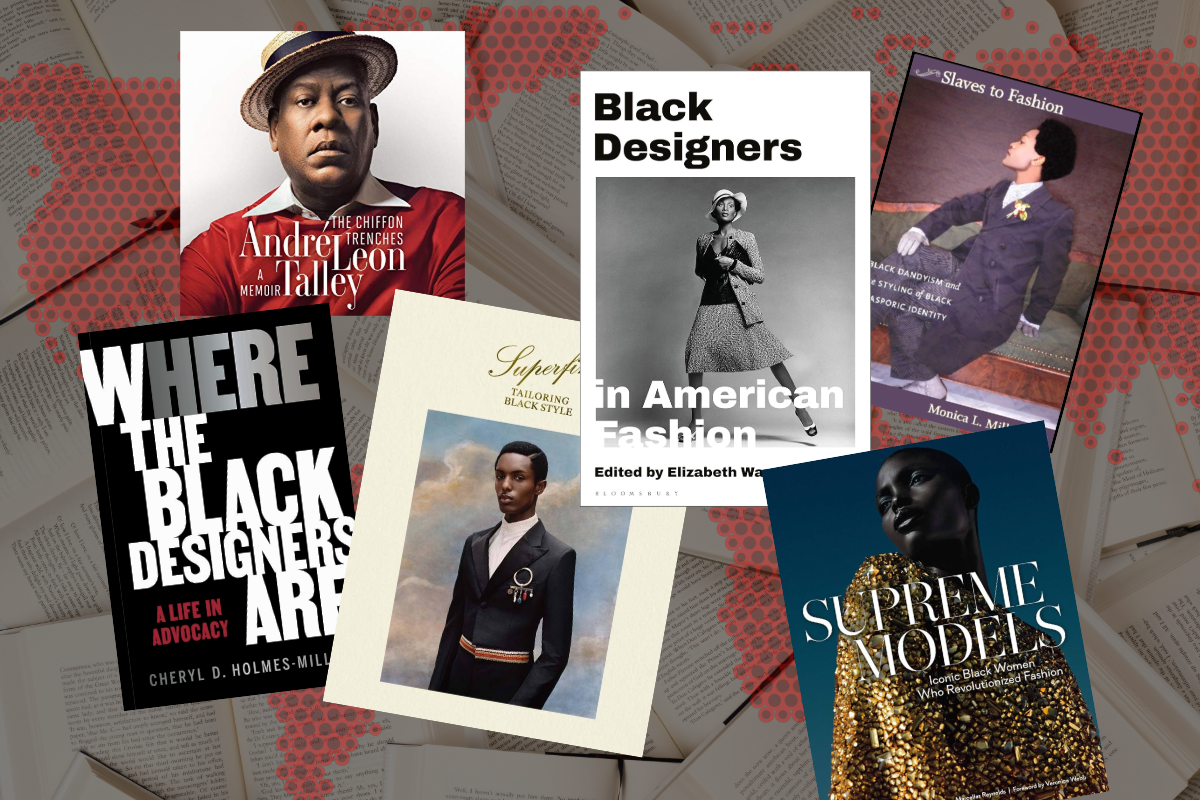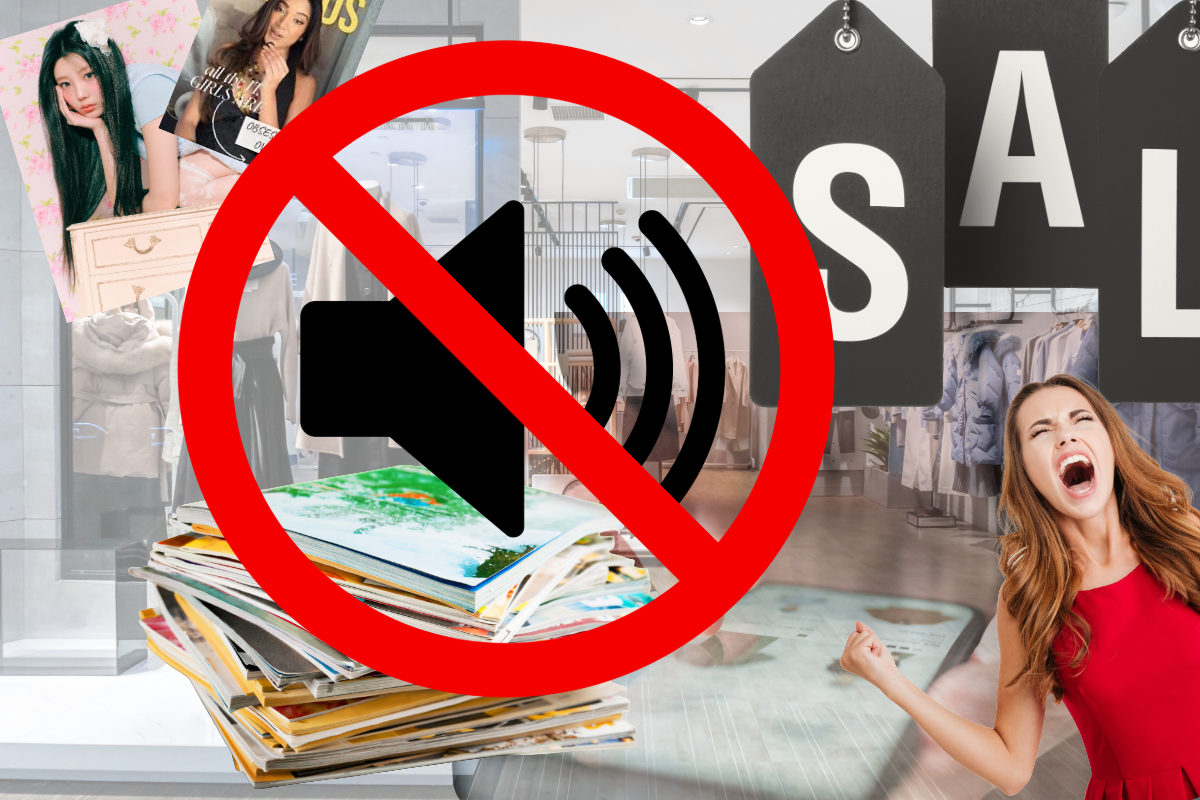What do you think is the relationship between fashion and mental health?

I think there's a substantial relationship between fashion and mental health. It is going to vary from one person to the next. You have some individuals who are all about fashion; they like to dress with the latest trends and styles, expensive brands, and just really show who they are by the way they dress. And then we also have individuals who seem to not care quite as much about what they wear. They go outside with a T-shirt and sweatpants or sweatshirt, and for them, it doesn't really matter if there's a fancy brand name attached to it or if it costs a lot or not. It will vary from one individual to the next.
It sounds like what really matters is that people are able to choose the clothes that they identify with, regardless of what these clothes are. Is that right?

That's going to be a big part. As human beings, we like to have choices in life, and we can go back to psychological theories, early research, and back to Albert Bandura.
He said that as individuals we want to have choices. This is one reason why there can be some resistance in certain institution settings if there's a uniform. Especially, let's consider elementary school, middle school, and high school students who are wearing uniforms. It takes away that part of identity, that big piece of them being able to show everybody who they are.

But in other situations, it makes sense to have an appropriate uniform. Such is the case for military personnel, police officers, first responders, etc. We need to ensure that we can readily identify who the people are within the particular organization; it might be something in terms of safety—being able to find one another as we see different purposes, such as wearing camouflage when you're out in battle. That uniform can really go a long way, but more often than not, in a typical setting, what people like to have is the choice to wear what they want to wear. Also, we see how culture influences our clothing decisions as well. In areas of the Middle East, individuals may have to wear a hijab or wear clothing all the way from head to ankles. So there will be limited choices, and even in those cultures, there may be some people who don't like it, and others see it as a significant part of their faith. They have no problem dressing in that type of uniform style because they praise God and respect everybody else. In their culture, being respectful to their spouse and family is important. So there's going to be a lot of variation in terms of how people feel about it.
And this is a decision that we take every day, so why is clothing selection so important every morning when we wake up and decide what clothes we wear?

For some individuals, depending what they wear, can resemble a lot about their personality. Maybe it's a status symbol, somebody with a professional job who wants other people to see them as a professional, so they say: "I'm going to dress in a shirt and tie or a business blouse or whatever that looks like for that particular role."
Some individuals want to express themselves more creatively and wear something specific to some art they enjoy, a particular culture they're a part of, or a band they listen to.
Being able to express who you are to other people so that, whatever it is that I'm wearing, people can readily tell what I'm about. We say that we don't judge a book by the cover, so to speak. However, in real life, we do. Social psychology experiments have repeatedly shown that the first impression of an individual can be something that takes over two years to mitigate, minimize or have a different type of impression of the person.

Clothing, to a great extent, is one of the first things we see in a person, it could be true to who you are, or maybe you're trying to mask yourself in some way and look like something that you're not.
For example, I can wake up in a bad mood or feel sad, and in those cases, I'll try to dress better so I can carry myself better and feel better about myself. I act accordingly; it hides the bad day by dressing up nicely.

In other cases, sometimes people feel depressed or anxious, and they don't have the emotional energy to put a lot of thought into what they're going to wear that day.
For example, you can take a look at thrift shopping. Maybe you can get a resale of a designer handbag, a resale of a designer suit, normally costing $3,000, but now you have the opportunity to buy it for, let's say, $700 to elevate your status symbol. By buying thrift clothes, you can look like something that you're not necessarily a part of, but you want to feel like you are, so that can go a long way for people here.

There are also subcultures. We can take a look at the area of Chicago, we have two major league baseball teams, the Sox, and the Cubs. I am a huge Sox fan. You'll see me wearing Sox clothing. I'm not only supporting my team, but also it's a big part of my culture. My dad grew up on the south side in the suburbs. There's a different culture from the south side to the north side. You know a lot of individuals in the North would feel the same way, too. They wouldn't be caught dead wearing a Chicago Sox jersey, whereas I wouldn't be caught dead wearing a Chicago Cubs jersey. So it does make a huge representation of who you are when you're doing that intentionally.
Fashion, in many ways, is influenced by many social constructions, by the way we perceive gender, by our spiritual beliefs, and by stereotypes. What happens when all of these social constructions mute the voice of an individual? People are wearing what society wants them to wear instead of putting their personality and their expression of their authentic self when they're choosing their clothes. How does that affect their mental health?
The technical term I want to say here is cognitive dissonance. This is an argument you have between your ideal self and your ought self.
The ideal self means I'm free to express myself in whatever way I want to. Through my clothes, I'm getting the exact clothes I want, and I'm sending the exact message that I want to send to everybody who is seeing me. But when we take a look at the ought self, I ought to go with the trends of society, I really ought to fit in. Or we could say, must. I must wear this uniform to school. I must wear this specific gown. I must dress in this type of way. And if you don't feel comfortable with that, it's going to create some conflict, and it does ultimately yield.

A bit of a loss of sense of self happens, and you must consider here if you're adjusting to other people in terms of your fashion, what other areas of life are you adjusting as well? So that's something that can create a lot of conflicts.
It can lead to individuals feeling depressed and can lead to some heightened anxiety. You are doing something you're not meant to be doing, something you don't want to be doing, and representing something you don't want to be representing. So there can be much larger implications to that.
Especially if there's a strong tie in what you're wearing and you're forced to wear, and that's not an ideal that you match. Again, we're losing our sense of self which can be very damaging.
We take a look at the overall self-concept when we consider specifically self-esteem. Self-esteem is something that comes to us based on the appraisal from other people. But if people are appreciating what I'm wearing or putting me down and forcing me to wear something else, that will be attached to my self-esteem, and then, when that happens, I might start to struggle in areas such as self-love and self-confidence, and the entire self-concept becomes compromised.

So it also depends on how we react to clothes and how much value we put into the clothes. So what should I look for when I go shopping and choose my clothes to make sure that these clothes will impact my mental health positively and not negatively?
In an ideal world, you should be able to walk into a store, find the clothes you want, try them on, see if they fit, and go ahead and make the purchase and have absolutely no problem with it.
Now more realistically, many of us will have some constraints in terms of dressing appropriately for wherever it is that we're going, which will limit the options.
You know, if I'm going to work, it's a casual business type of situation. It might be appropriate to have a nice dress and shoes. A T-shirt or something like that would be grossly out of line.

Also, considering the terms of society, what do you want to say to other people who are around you? Going back to the beginning, not judging a book by its cover. We know that people judge books by the cover all the time. So considering what you want to put out there, and if you intentionally want to go against the grain by dressing in something flashy, you are making that choice. Also, consider whatever type of implications are going to come along with that. You might have some people who are resisting you, some people who'll try to put you down. You might have some people who don't want to engage with you. But ultimately, you're yourself, and what's most important in life is living an authentic life and being yourself. If you are comfortable with some things that might go further, you go against the grain, and that's okay. Do what makes you happy.
There is some debate about uniforms being binary and people not being binary. Should kids adopt nonbinary uniforms, or what would be the repercussions if we don't hear what the kids want to say to us?

We want to be equitable as possible. Equal means all things are created the same. We all have the same exact opportunities; the same pot of gold is sitting out there for everybody to pull from.
Whereas equitable means that we bounce things out, you know we have different types of accommodations, and we try to give people additional resources who really need them.
And that's extremely important. As we're moving forward, speaking about nonbinary individuals or just anybody in general, whoever you are, we need to be equitable in this, so we can't just say: "boys wear pants, girls wear dresses."
Whatever you're offering to one gender should be available to the others. You might have a biological male who feels more comfortable wearing a skirt, or you may have a biological female who's more comfortable wearing pants and a tie. We have to be okay with that type of situation, because if we're not, essentially, what we're saying is, "you're not good enough. Your voice doesn't need to be heard" "You're from a population that we don't get. We're not going to hear you". And that can have all sorts of identity problems for individuals growing up, especially during these critical stages of development.
Children and adolescents are going through physiological development in terms of growth and puberty, and they're also going through learning development and what they're learning here is: "What you're doing isn't right." "What you're doing isn't normal, and you're not good enough."

And we certainly can't have that. We also have the social development piece. So socially, now here you are trying to conform to something that's outside of who you are. It's completely unnatural, and again you're losing that sense of identity throughout. So we have to be equitable with this.
If we are going to say females wear skirts, males wear pants, we have to allow either gender to wear either one. Or what you can have as well, is this one straight uniform where everybody wears the same exact thing, and that would still be more appropriate than pants versus skirts.
But the more options and the more sense of identity individuals can feel, the better. People want to have choices, when we don't have choices we feel limited. That's when we start to get frustrated, and angry, and all things that we want to avoid, especially at those earlier stages of life.
You can find Dr. Matt Glowiak at
You can order Dr. Matt's book here:








